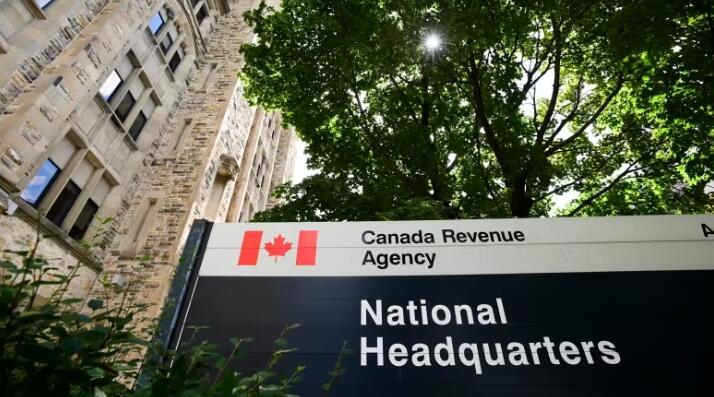KPMG wants CRA affidavit in tax ‘sham’ case struck from public record

CBC/Radio-Canada granted standing to oppose motion to strike
In a court hearing last April, a judge agreed to restrict public access to documents in a $37-million tax “sham” case.
KPMG Law requested the temporary sealing order in the case regarding its client Gold Line Telemanagement, which the Canada Revenue Agency alleges was involved in a “carousel scheme.”
Now, The Fifth Estate has learned that KPMG has applied to the court to have the affidavit at issue struck from the record completely — preventing the public from ever knowing what was in that CRA document and accompanying exhibits filed with the court last February by the Department of Justice.
While the contents of those documents are so far unknown to the public, they could provide key information regarding how an alleged $37-million tax scheme was perpetrated against the Canadian Treasury.
A media lawyer hired by CBC, Iain MacKinnon, has been granted standing to argue against KPMG’s motion to strike in a court hearing scheduled for January 2024.
There can be legitimate reasons for a court to remove or seal documents in court cases. For example, courts may move to protect sensitive commercial information not relevant to the public interest.
Still, MacKinnon says Canadians have a constitutional right to access court proceedings and that motions to strike and sealing orders should be an exception.
“There’s allegations that there are tens of millions of taxpayer dollars at issue,” MacKinnon said. “All the evidence that is before the court should be accessible to reporters and the public.”
Founded in 1991, Gold Line Telemanagement is a Canadian telecommunications company that says it researches, develops and markets telecommunications products.
Gold Line declined to answer questions from The Fifth Estate, stating the case was before the courts.
Alleged carousel scheme
A carousel scheme refers to a group of companies working together to set up fake business transactions in order to generate illegitimate GST or HST tax refunds — when no tax was ever paid in the first place.
In a statement, the CRA said it has identified at least $1.1 billion related to carousel schemes in Canada since 2017.
The Fifth Estate reported last week on another alleged carousel scheme in Canada involving a company called Iris Technologies. In that case the CRA released $63 million in tax refunds that it is now seeking to recoup, stating they were “illegitimate.”
Iris and Gold Line have both denied the allegations and appealed the CRA’s reassessment to the Tax Court of Canada.
Court filings show there is an overlap in some of the companies involved in the Iris and Gold Line cases.
KPMG lawyers state the CRA affidavit contains “confidential taxpayer information” not relevant to the case, and that it and the accompanying exhibits are “scandalous, frivolous or vexatious or an abuse” of the court and “should be struck.”
According to the CRA court filings, KPMG provided Gold Line with “tax and accounting support” and “professional advice” during the period in which the alleged bogus refunds were made.
The CRA makes clear, though, that KPMG did not prepare the tax returns claiming the refunds at issue.
KPMG Law is one branch of the broader firm, which also includes accounting, tax and advisory services. The federal government regularly hires the firm.
KPMG declined to respond to The Fifth Estate’s questions about Gold Line, citing client confidentiality.
Public information
The Fifth Estate only learned of the documents’ existence after noticing a reference to them in public tax court records in Gold Line’s appeal.
Justice Randall Bocock issued the temporary sealing and confidentiality order on April 26, 2023.
MacKinnon says the Supreme Court made it clear as far back as 1994 that the media should be informed when lower courts are deciding on publication bans and whether or not to restrict access to court files.
The president of the Canadian Association of Journalists, Brent Jolly, says while some courts have clear guidelines in place to alert the media when sealing orders are requested, not all courts have taken proactive measures.
“We have the case law on our side, but then for some reason, either there’s a disconnect in terms of how it’s interpreted, or how it’s implemented,” Jolly says.
A spokesperson for the Tax Court of Canada said there is “no policy” in place to alert the media when deciding whether to limit public access to court records. They also said the Chief Justice of the Tax Court of Canada, Eugene Rossiter, has begun discussions on this topic.
Related News
U.S. Supreme Court upholds ruling ordering Trump administration to fulfil $2B in USAID contracts
Demonstrators hold signs on Feb. 27 in Washington, D.C., to honour former USAID employees terminatedRead more
Quebec, Ontario mayors shut out from White House annual meeting
Montreal Mayor Valérie Plante travelled to Washington D.C. to attend an annual meeting at theRead more
